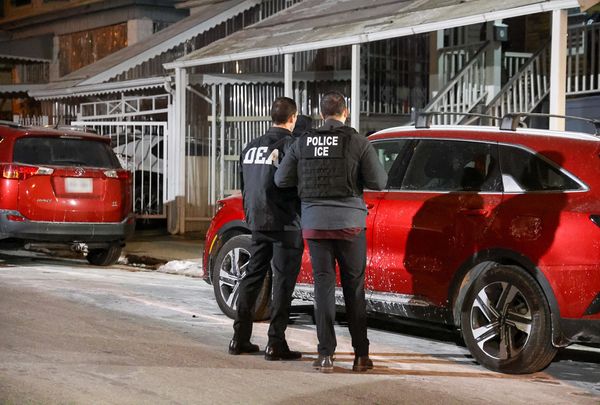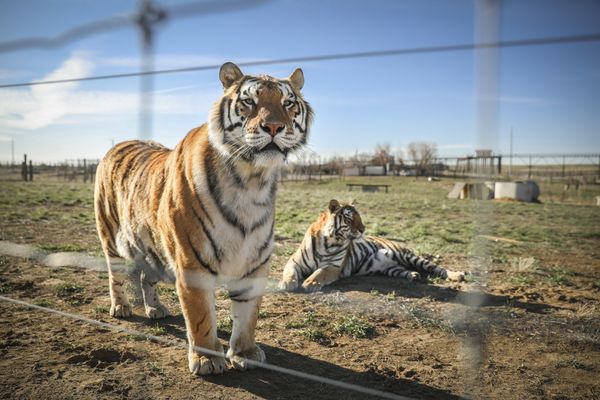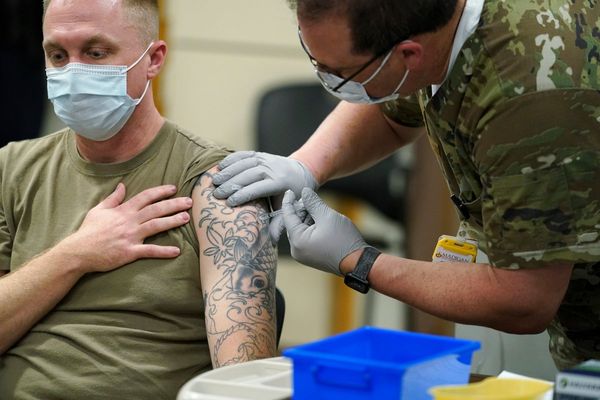
Australia woke last Thursday to shocking and sombre news: a 21-year-old woman had been killed in a Sydney private school, her body found in the bathroom of the school’s gymnasium.
Lilie James was a water polo coach at St Andrew’s Cathedral school. Police found her dead with serious head injuries around midnight on Wednesday after a tip-off. They described the scene as “confronting”.
James was the fourth woman in 10 days in Australia to be allegedly killed by a man known to her, and the 43rd woman to die since the start of the year – a grim statistic that has sparked a national conversation about violence against women.
Police were searching for James’s colleague and former student at the school Paul Thijssen in relation to the death. He has been missing since James was killed. A male body has since been recovered from rough waters in Sydney’s eastern suburbs.
‘There are no words’
In a note to parents last Friday, St Andrews’ head of school, Dr Julie McGonigle, said James was “adored by all”.
“She was full of vitality, energy, enthusiasm and a natural fit in our community.
“There are no words for what has occurred. It is like entering a foreign land.”
The private school’s community is in mourning, its courtyard covered with a bright mass of flowers in memory of James. On Monday morning students, parents and teachers held each other in long embraces and clasped hands around the memorial.
Among the bouquets were notes of love – “Lilie, those we love never truly leave us, they live with us forever in our hearts and memories” – and a big white teddy bear.

To many students, James was a beloved coach. One student carried a water polo ball, which she was seen asking other students to sign. A fundraiser on behalf of the James family has raised more than A$20,000 in four days.
An organiser and friend of the family, Daniel Makovec, wrote that James was “stolen from us”, and “everyone who has been graced with the presence of Lilie will be broken forever”.
On the weekend a group of relatives, friends and school community members gathered at a candle-lit vigil.
James’s grandmother Barbara Adelt said on local radio station 2GB: “Lilie, they are all turning out for you. She’d love that, she would.”
McGonigle said in an address to St Andrew’s students on Monday: “We are left with grief, shock and utter confusion – because both parties were known to our school.
“Our beautiful Ms James, a ray of light, and Mr Thijssen, whose actions are completely incongruent with who we knew.”
Thijssen graduated from St Andrew’s in 2017. He was sports captain and prefect, and has since worked for the school in various roles, including as an after-hours coordinator and a sports coach.
‘A national emergency’
The impact of James’s death has reopened a conversation about male violence against women, including domestic, family, sexual and intimate partner violence – something that has been described in the past as a national crisis.
Last December saw a decade-high number of women allegedly killed by men in Australia. At least 10 women were killed in the month – more than three times the average rate of one woman a week.
“Violence against women is a national emergency and must remain an urgent priority,” Patty Kinnersly, CEO of Australia’s national prevention of violence organisation Our Watch, said.

Kinnersly pointed to the 43 women who have been allegedly killed in Australia so far this year, including three in the past week alone. Only four of the accused have an “unknown” relationship to the woman, or suppression on their names. Each of these deaths were preventable, she said.
“What we know is that almost all perpetrators of violence against women are men, and almost all perpetrators have two key elements in common – they do not view women as their equals and do not respect women.”
Gendered violence had an “ongoing ripple effect” beyond deep pain and harm to individuals, Karen Bevan, CEO at Full Stop Australia, said.
“Social attitudes that condone violence against women or treat it as less serious continue to be common. Myths and misconceptions about domestic violence and sexual violence are still widely shared and believed.”
It was hard for women to be taken seriously, Bevan said.
“The broader public conversation about violence against women is often disrespectful and can drive a backlash that somehow, as women are hurt, harmed and killed, tells a story that – against all evidence – women are the problem.”
The key to stopping violence before it started was a change in attitudes, Kinnersly said.
“It’s vital that we’re working with young men and boys … to promote healthier and more positive and respectful ways of being a man.”
Part of that was “reaching them where they are” – at school, home, sports club or online, for example.
Tarang Chawla is a lawyer who became an activist against men’s violence after his sister was murdered by her partner in 2015 when she was 23. “We are responsible for the culture that lets men treat women like chattels to dispose of,” he wrote on Instagram on Friday.
“The needless killing of Lilie James is a tragic reminder of the dark, insidious reality of men’s violence against women,” Chawla wrote.
“For all the violence elsewhere that we condemn, Australia has a problem that we urgently need to fix.
“Lilie … may your memory finally be the one woman’s death that brings long overdue change.”
In Australia, the national family violence counselling service is on 1800 737 732. In the UK, call the national domestic abuse helpline on 0808 2000 247, or visit Women’s Aid. In the US, the domestic violence hotline is 1-800-799-SAFE (7233). Other international helplines may be found via www.befrienders.org.







